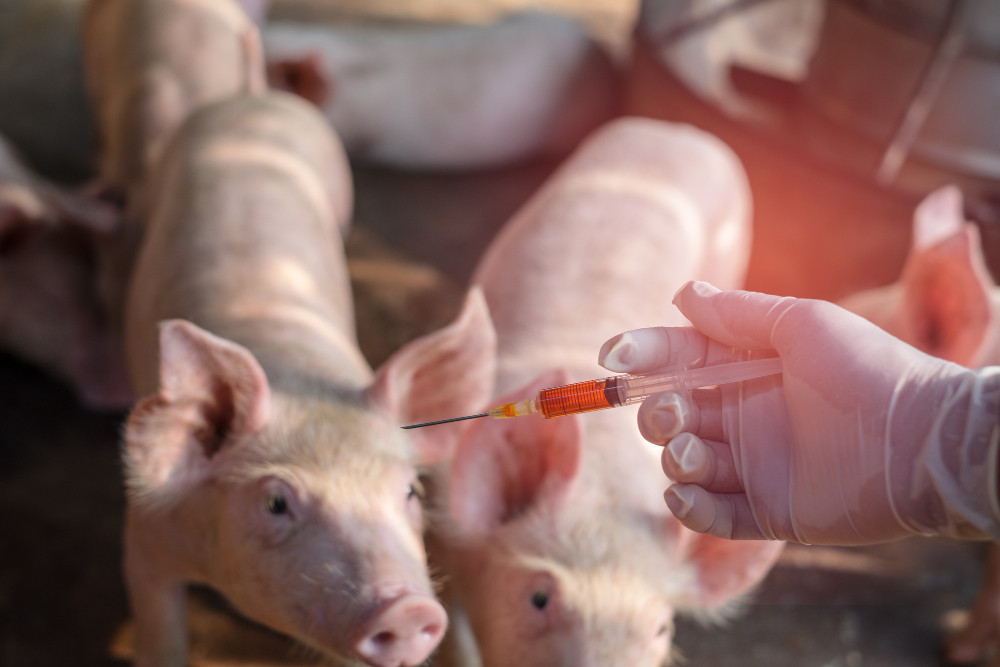A vaccine to combat African swine fever (ASF) could soon see the light of day thanks to research work carried out by French researchers. The first results obtained open the perspective of obtaining an effective method to combat this disease, responsible for high mortality in pigs and wild boars in several countries in Europe, Asia and the Caribbean.
African swine fever is the cause of an epizootic that has affected the European Union since 2014. It causes significant losses in wild boar populations and in pig farms. The virus is currently circulating in Italy, Poland and Germany. The disease, which cannot be transmitted to humans, has no treatment.
French scientists inactivated the Georgia 2007/1 viral strain, which is currently circulating in the European Union. While monitoring the effects of this thermal inactivation, only caused a mild fever in the infected animalwhile infection with the Georgia strain is generally fatal in 100% of cases.
PROMISING RESULTS FOR A FUTURE VACCINE
The team carried out a series of studies on this attenuated strain and confirmed the weak symptoms in most pigs inoculated with this virus by the intramuscular or oronasal route. Although the security was not perfect, the survival rate was much higher than with the original viral strain.
Intramuscular vaccination is the most widely used method on farms, but the Oral vaccination could allow vaccinating wild boars by baiting. This method was used for classical swine fever in the early 2000s and made it possible to eliminate the disease from areas where it was present in France. That is why these two pathways are being tested.
Another promising result of study been that infected pigs developed an immune response that allows resistance to ASF virus infection without showing any symptoms, just two weeks after vaccination.
Studies are still ongoing, in particular to ensure that this attenuated strain cannot be passed from animal to animal or become virulent again. The ability of the vaccine to prevent vaccinated animals, and those exposed to the virus, from transmitting it again will also be evaluated.
The developed vaccine has the advantage of not being produced by genetic manipulation, which would facilitate the authorization of its use in nature. In fact, wild boars would probably be the first target of the vaccine in Western Europe. This species is the most affected and the presence of the virus in wildlife represents a risk for pig farms.
VACCINE LEAD BY SPAIN
The professor at the Faculty of Veterinary Medicine of the Complutense University of Madrid (UCM) Jose Manuel Sanchez-Vizcaino, declared a few months ago that pilot plans for an African swine fever vaccine that he himself is coordinating are expected to begin in 2024 in Lithuania, Romania and Kenya. Likewise, the Spanish researcher was hopeful that, after long years of research into such a complex disease spread across five continents with a multitude of variants, they now have three vaccine prototypes for wild boars and domestic pigs. , with promising results.
The UCM professor emphasized that, although it is It is essential to have a safe and effective vaccine, the control of wild fauna, biosecurity and the collaboration of administrations and farmers They are essential to put an end to the problem.
